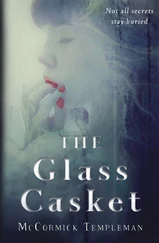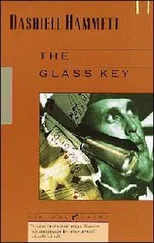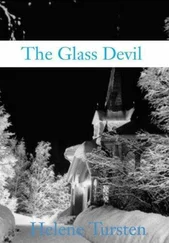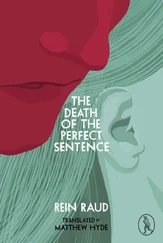The head of parliament walked to the dais, carrying a single sheet of paper. Sophia’s stomach seemed to knot of its own accord. If they had voted for no action—as Shadrack recommended—they would not need a sheet of paper to say so.
The man cleared his throat. “The members of parliament,” he began slowly, emphasizing that he, for one, did not pay for his time, “have voted on the proposed measures. By a vote of fifty-one to thirty-nine we have approved for immediate implementation”—he coughed—“the Patriot Plan proposed by Mr. Rupert Middles—”
The rest of his words were lost in an uproar. Sophia sat, dazed, trying to comprehend what had happened. She pulled her satchel strap over her shoulder, then stood and peered over the balcony railing, anxious to find Shadrack, but he had been swallowed by the crowd. The audience behind her was expressing its collective disappointment by means of missiles—a crust of bread, a worn shoe, a half-eaten apple, and a rainstorm of peanut shells—hurled down at the members of parliament. Sophia felt herself being pressed up against the lip of the balcony as the enraged crowd pushed forward, and for a terrible moment she clung to the wooden ledge to avoid being pushed over it.
“Down to chambers, down to chambers!” a timekeeper cried in a piercing tone. Sophia caught a glimpse of the members of parliament hurrying past him.
“You’ll not get away so easily, cowards!” a man behind her shouted. “Follow them!” To her relief, the crowd suddenly pulled back and began clambering over the benches for the exits. Sophia looked around for the woman who had sat beside her, but she was gone.
She stood for a moment in the thinning crowd, her heart still pounding, wondering what to do. Shadrack had said he would meet her in the balcony, but now he would surely find it impossible. I promised to wait , Sophia said to herself firmly. She tried to steady her hands and ignore the shouts from below, which seemed to grow more violent by the second. A minute passed, and then another; Sophia kept her eye on her watch so that she would not lose track of time. Suddenly she heard a distant murmur that became clearer as more people chanted in unison: “Smoke them out, smoke them out, smoke them out! ” Sophia ran to the stairs.
On the ground floor, a group of men was battering the doors of the parliament chambers with the overturned dais. “Smoke them out!” a woman shrieked, feverishly piling chairs as if preparing for a bonfire. Sophia ran to the front doors, where seemingly the entire audience had congregated, choking off the entrance. “Smoke them out, smoke them out, smoke them out! ” She hugged the satchel tightly against her chest and elbowed her way through.
“You bigot!” a woman in front of her suddenly shouted, flailing her fists wildly at an older man in a gray suit. Sophia realized with shock that it was Augustus Wharton. As he swung out with his silver-tipped cane, two men with the unmistakable tattoos of the Indies threw themselves against him, one of them wrenching the cane from his hand and the other pulling his arms back behind him. The woman, her blue eyes fierce, her blonde hair clinging to her face, spat at Wharton. Suddenly she crumpled into a pile of her own skirts, revealing a police officer behind her with his club still raised. The officer reached for Wharton protectively, and the two tattooed men melted away.
There was a shout followed by a cascade of screams. Sophia smelled it before seeing it: fire. The crowd parted, and she saw a torch being hurled toward the open doors of the State House. Screams burst out as the torch landed. She pushed her way into the crowd, trying vainly to catch a glimpse of Shadrack as she inched down the steps. The smell of smoke was sharp in her nostrils.
As she neared the bottom, she heard a shrill voice cry out, “ Filthy pirate! ” An unshaven man with more than a few missing teeth suddenly toppled against her, knocking Sophia to the ground. He rose angrily and threw himself back against his assailant. Sophia pushed herself up from hands and knees unsteadily; seeing a clear path down to the street, she hurried down the remaining steps, her knees trembling. There was a trolley stop right by the corner of the State House, and as Sophia ran toward it a car was just arriving. Without stopping to check its destination, she jumped aboard.
1891, June 14: 10-Hour #
To the north lay a prehistoric abyss; to the west and south lay a chaos of jumbled Ages. Most painfully, the temporal chasm between the former United States of America and Europe became undeniably clear in the first few years after the Disruption. The Papal States and the Closed Empire had descended into shadow. It thereby fell to the eastern seaboard on the western edge of the Atlantic to maintain the glorious tradition of the West. The United States became known as New Occident.
—From Shadrack Elli’s History of New Occident
SOPHIA TOOK A deep breath as the trolley pulled away from the State House to circle Boston Common. She pinned her trembling hands between her knees, but her scraped palms felt hot and began to sting. She could still hear the crowd, and all around her on the trolley the agitated passengers were discussing parliament’s shocking decision.
“It won’t stand,” a portly man with a gleaming pocket watch said, shaking his head. He stamped his patent-leather boot indignantly. “So many in Boston are foreigners; it’s entirely impractical. The city will not stand for it.”
“But only some of them have papers and watches,” objected a young woman beside him. “Not every foreigner does.” Her nervous hands crumpled the lap of her flowered skirt.
“Is it true that deportations will begin on July fourth?” an older woman asked, her voice quavering.
Sophia turned away and watched the passing city streets. The great clocks of New Occident with their twenty hours stood on every street corner. They perched on the lampposts; they loomed from every building facade; they gazed over the city from countless monuments. Ponderous bell towers dominated the skyline, and at the city center the chiming could be deafening.
And every New Occident citizen carried a watch that mirrored the movement of these great monuments: a pocket watch inscribed with the moment of its wearer’s birth, bearing constant witness to a life unfolding. Sophia often held the smooth metal disc of her lifewatch, taking comfort from its dependable ticking, just as she took pleasure in the reassuring chime and ring of every public clock. Now it seemed that these clocks, which had always been her anchor, were counting down to a disastrous end: July 4, a mere three weeks away. The borders would close and then, without the papers they needed to return, the two people she most wanted to see in the world might be stranded forever.
Sophia could hardly remember her father, Bronson Tims, or her mother, Wilhelmina Elli. They had vanished on an expedition when she was barely three years old. She had one precious memory of them, which she had worn out to a thin, faded, insubstantial thing: they walked on either side of her, each holding one of her hands. Their laughing faces looked down from a distance with great tenderness. “Fly, Sophia, fly!” they called out in unison, and suddenly she was lifted from the ground. She felt her own laugh welling up, joining her mother’s trill and her father’s deep chuckle. That was all.
Wilhelmina—Minna, for short—and Bronson had been first-class explorers. Before their daughter was born, they had traveled south to the Baldlands, north to the Prehistoric Snows, and even as far east as the Closed Empires; and afterwards they planned to travel with Sophia—once she was old enough. But an urgent message from a fellow explorer, deep in the Papal States, had forced them to leave sooner than expected, and they had struggled terribly with the problem of whether to take their daughter or not.
Читать дальше












